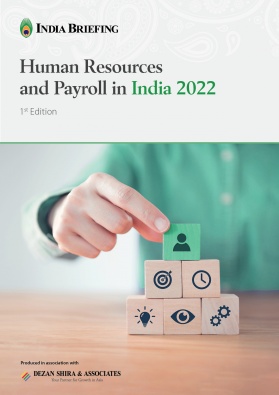New CSR Rules Limit Disclosure of Key Details in Company Annual Report
Companies in India can limit the disclosure of important information on their CSR activities and spending during a financial year when preparing their annual reports. The excluded details, however, will still need to be provided via the CSR-2 form, which is filed on the Ministry of Corporate Affairs website. The changes are reflected in the revised Annexure-II to be included in the Board’s report.
On September 20, 2022, the Ministry of Corporate Affairs notified the Companies (Corporate Social Responsibility Policy) Amendment Rules, 2022. It has come into force as on date of publication in the Official Gazette.
The notification provides the new Annexure-II format (see official MCA PDF document here) for the annual reporting on corporate social responsibility (CSR) activities to be included in the Board’s report for the financial year commencing on or after April 1, 2020.
What do the new CSR Rules change?
Companies can now limit the information disclosed by them on CSR spending in their annual reports. The revised Annexure-II does not require details on the company expenditure on ongoing and other CSR projects.
Details excluded in the new reporting format include the following: name, location, and duration of the CSR project, amount allocated by the company for the project, amount spent in the current financial year on the project, mode of implementation, name of the implementing agency and their CSR registration number, and amount transferred to the unspent CSR account.
It is important to note that these omitted details must still be disclosed by the company when filing their CSR-2 form with the MCA (via the MCA portal).
Implications of the revised disclosure rules
The changes to the CSR disclosure requirements in the company’s annual reports mean that the shareholders of individual listed companies, their employees, peers, and customers, as well as the general public will not be able to easily determine where and how the company CSR funds are being spent.
The decision to exclude these important details have therefore raised questions from CSR experts, in particular as it limits the scope for impact assessment of CSR activities and spending by key stakeholders.
Top CSR contributing companies in India – FY 2020-21
|
S. No. |
Company name |
Amount (INR) |
|
1. |
Reliance Industries Limited |
9.22 billion |
|
2 |
Tata Consultancy Services Limited |
6.74 billion |
|
3 |
Tata Sons Private Limited |
5.458 billion |
|
4 |
HDFC Bank Limited |
5.34 billion |
|
5 |
Oil and Natural Gas Corporation Limited |
5.314 billion |
|
6 |
Indian Oil Corporation Limited |
4.45 billion |
|
7 |
NTPC Limited |
4.188 billion |
|
8 |
Infosys Limited |
3.618 billion |
|
9 |
ITC Limited |
3.354 billion |
|
10 |
Wipro Limited |
2.469 billion |
Source: CSR National Portal
As per filing with the MCA, a total of 17,007 companies spent INR 248.6546 billion in FY 2020-21 on CSR activities.
The amended provisions – excerpted from the MCA notification
By amendment, the following provision has been inserted into the Companies (Corporate Social Responsibility Policy) Amendment Rules, 2014:
(i) in sub-rule (1), after the proviso, the following proviso shall be inserted, namely:-
“Provided further that a company having any amount in its Unspent Corporate Social Responsibility Account as per sub-section (6) of section 135 shall constitute a CSR Committee and comply with the provisions contained in sub-sections (2) to (6) of the said section.”; and
(ii)sub-rule (2) shall be omitted.
In the said rules, in rule 4, for sub-rule (1), the following sub-rule shall be substituted, namely:-
‘(1) The Board shall ensure that the CSR activities are undertaken by the company itself or through, –
(a) a company established under section 8 of the Act, or a registered public trust or a registered society, exempted under sub-clauses (iv), (v), (vi) or (via) of clause (23C) of section 10 or registered under section 12A and approved under 80 G of the Income Tax Act, 1961 (43 of 1961), established by the company, either singly or along with any other company; or
(b) a company established under section 8 of the Act or a registered trust or a registered society, established by the Central Government or State Government; or
(c) any entity established under an Act of Parliament or a State legislature; or
(d) a company established under section 8 of the Act, or a registered public trust or a registered society, exempted under sub-clauses (iv), (v), (vi) or (via) of clause (23C) of section 10 or registered under section 12A and approved under 80 G of the Income Tax Act, 1961, and having an established track record of at least three years in undertaking similar activities.
In the said rules, in rule 8, in sub-rule (3), in clause (c),-
- for the words “five percent”, the words “two per cent.” shall be substituted;
- for the words “whichever is less”, the words “whichever is higher” shall be substituted.
About Us
India Briefing is produced by Dezan Shira & Associates. The firm assists foreign investors throughout Asia from offices across the world, including in Delhi and Mumbai. Readers may write to india@dezshira.com for more support on doing business in in India.
We also maintain offices or have alliance partners assisting foreign investors in Indonesia, Singapore, Vietnam, Philippines, Malaysia, Thailand, Italy, Germany, and the United States, in addition to practices in Bangladesh and Russia.
- Previous Article M&A as a Corporate Strategy to Leverage Technology, Embrace Digital Disruption in India
- Next Article What Does the Indian Premier League Cricket’s Staggering Growth Mean for Business?








